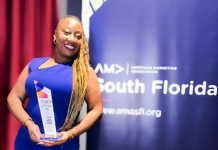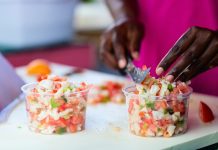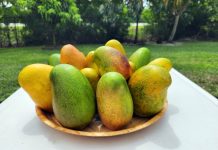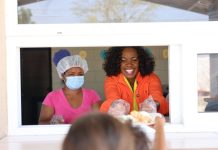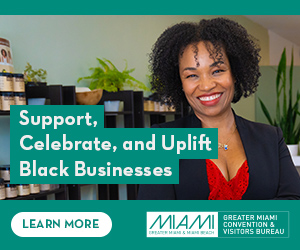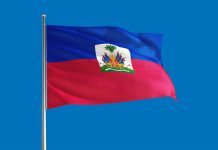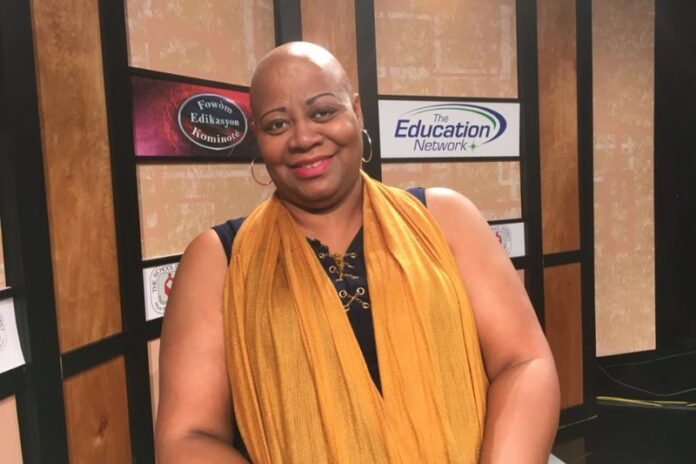
Finding a fellowship of Breast Cancer Survivors has become a great source of strength for so many women battling breast cancer. No one understands this more than Haitian-American community health advocate Djénane St-Fleur. A three-time cancer survivor herself, she had spent years fundraising for cancer research with Susan G Komen, while educating the Caribbean community about health empowerment. And promoting breast cancer awareness proves more urgent than ever, says St. Fleur, as the disease remains the leading cause of cancer death in Caribbean women. With this in mind, we spoke more with her about her life’s mission to support other women in the Haitian and Caribbean community through their own recovery journeys.
After your own personal experience, why was it important for you to become an advocate for breast cancer awareness?
At age 33, I never thought about being diagnosed with breast cancer. When I first felt a lump under my armpit, my life as I knew it changed. In just a few months I went from diagnosis to biopsy, to lumpectomy, mastectomy and therapies. I felt like I was on the boxing ring. As my life was put on hold, I was reading any information that I could find. So, I joined Susan G Komen and met some wonderful, knowledgeable people. They became my family, and that’s when realized how important it was to become an advocate.
What main events and initiatives have you led regarding breast cancer awareness?
I started doing health fairs at the churches, and then became a speaker for Susan G. Komen. I later received a grant for a show Prekosyon Pa Kapon, which emphasized awareness and early detection. Now as a founding member of the Haitian American Chamber of Commerce, we continue to raise funds through our annual October gala for Susan G Komen. We are also a sponsor for the Susan G Komen Race for the Cure, both for the Miami/Fort Lauderdale and Palm Beach affiliates. I also do presentations and radio interviews on the issue in the U.S., Haiti and France.
Why is promoting breast cancer awareness crucial for the Haitian and Caribbean community?
Awareness about treatments remains a problem both in the Haitian-American and Caribbean-American community. Women living in the U.S. may opt not to go through treatment because they aren’t aware of the reconstruction options available. I think the social stigma makes it difficult for both men and women to share their experiences. We also need to educate the public on the risk factors that can help reduce cancer rates. Primary prevention strategies include lifestyle modification of four major risk factors: tobacco, alcohol, diet and physical activity.
What initiatives are you planning for the future?
As a three-time cancer survivor, I’ve learned to make small steps. For my short term goals, I would like to focus on financial and legal matters those undergoing breast cancer treatment need to be aware of, like advance directives, health care power of attorney, living wills, do-not-resuscitate, and other legal agreements. I would like the community at large to learn about their rights and find support and resources to navigate these legal, financial and insurance concerns.
How can people support/participate in your mission?
Donate or sponsor to keep the radio segments on nutrition and health on the Global Business Talk Show on WAVS 1170AM or Prekosyon Pa Kapon. I want to encourage people to share their stories, even anonymously, because the life you save can be your own, as sharing is caring. You can also volunteer to visit people in hospice, or volunteer with Health Education Prevention & Promotion, Inc.
What advice would you give to women currently undergoing treatment?
Explore a less toxic approach for your diet, as the complications of diabetes and high blood pressure make the diagnosis and treatment of breast cancer or any immune-deficient diseases more difficult. Communicate with someone who has survived cancer. They will help you make treatment decisions, manage side effects, and keep a positive attitude. Having faith is also important when facing remissions. After my first diagnosis, I told myself that if it happens again, I would hope to sleep and die. But when it metastasize 12 years later, I found the courage to fight again. Although I was told that I had a few months to live, my son told me that I would outlive the people who told me my expiration dates. A year later, when I faced another diagnosis of lung cancer, he said, ‘you fought this before and won, you can do it again.’ The Lord gave and the Lord has taken away; may the name of the Lord be praised.







